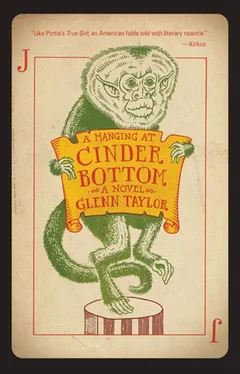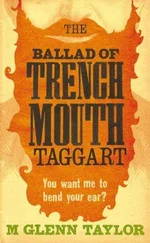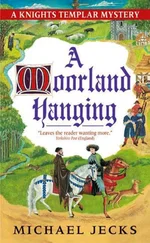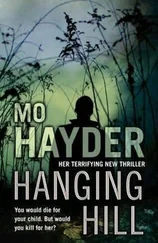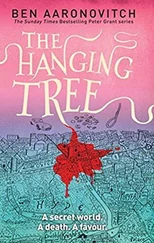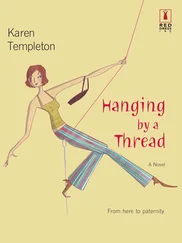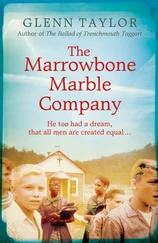Fred Reed, jonah negro. Owner of social club where all mix and drink on Sabbath.
Council is the postmaster, a pharmacist, a Russian Jew, a negro doctor, and a negro newspaper owner.
He turned to the third and then the fourth page, where the writing became fuller and more boisterous, the handwriting still controlled.
How long before a Ku Klux Klan is organized here to rid the place of low-class colored men who have authority over the white man?
Abe thought it a strange notion — the Klan in Keystone. He flipped pages and read passages, their fervor increasing with accumulation.
Those that recognize the workings of the Almighty Father are wondering how soon he will rise in his wrath and destroy the town of Keystone as he did Sodom of old. Some great calamity will befall the place, for wickedness has reigned here so long.
Abe laughed again. He’d known the first time he saw the man that a slate or two was loose.
He studied the loops of Ladd’s l ’s and e ’s, the snake tails of his g ’s. He set down the stack and looked again to the open drawer, where a Holy Bible of fine brown leather remained. He took it up and noted the bulge at its center. He opened it to find a collection of letters.
Each was from Ladd’s father. Each was penned on official paper stock of the Virginia General Assembly. In the most recent, he’d written:
I am sorry to hear of the shooting of the young Baach. It will always be this way for those who speak the truth. We will always be in the sights of the wicked. You must stay now and find a new method with which to reach the sinners of Keystone. You must spread the message of our prohibitionist cause to the vile places of the lesser Virginia. You must be steadfast in gaining advantage for us in the purchase of the property. If I am ever to convince old man Hood to sell us his land for less than others are offering, you must aid me in finding how, lest we lose our chance to build the movement there.
“I’ll be damn,” Abe said.
He thought.
He studied further the handwriting of the younger Ladd.
He set a sheet of lined paper on the desk. He took up the gold pen and dipped it in the ink. He wrote:
Dearest Father,
The brother of young Baach has returned to Keystone. He is the nearest man I’ve yet encountered to what might resemble a second coming of our Lord Jesus Christ. He will work out the sale of the land with Mr. Hood.
There was a creak from the hall floorboards and then a knock at the door. He lifted the pen midstroke on the spine of a capital S . He did not move.
Agnes put her mouth to the keyhole. “Uncle Abe?” she whispered.
He let her in.
When she asked why Mr. Ladd was asleep like he was, Abe told her, “Because I dumped a powder in his buttermilk.”
“Why?”
“Because I suspected he was up to no good.”
“And was he?”
“Yes.”
He checked his watch and told her he was a little short on time. He asked if there was something in particular he could help her with.
“Entertainment,” she answered.
“How do you mean?”
“Well,” she said. The lantern flame waggled. Her face swallowed her eyes. “You been bringing in an awful many entertainers for the adults in the Bottom.”
He nodded.
“Well. I wondered if you might bring in some meant for children.”
And he knew as soon as she’d said it that he had failed her. “Aggie, that is a fine idea.”
“I like puppets.”
He put his hand on her shoulder. “Tomorrow morning, I will wire the best puppeteer I know. I’ll offer him so much money he’ll be bound for Keystone before you finish that book.” He pointed to the thin volume of riddles in her clutch.
She looked down at her bookmark, a wood shim that baby Ben had scratched with a red wax crayon. “What if I finish it tomorrow?”
“Read slower.”
She smiled. She looked at the stack of papers. “What’s that?”
“A book Mr. Ladd is trying to write.”
“Is it any good?”
“Not particularly.”
“What’s it about?”
He thought for a moment. “I don’t know,” he said. “Condemnation.”
Agnes picked her nose a little bit. She said, “Sounds wearisome.”
He nodded. “It’s a twice-told tale at any rate.”
She stood and went to the door. She stopped and put her hand on the knob and yawned. “Any magic in it?” she asked.
“Not a shadow.”
Abe watched the door close. He listened to Ladd breathe.
He would finish the forged letter and hold it until the time was right, and in the meantime, he would pay his contact at the postal office to show him any letter Ladd brought in to mail home.
He returned everything to its precise place on the desk and in the drawers. He took off Ladd’s shoes and eyeglasses, crossed the man’s hands over his rib cage, and returned the key to its pocket.
He’d wait a day or two before he made mention of his slow conversion to Ladd’s godly ways. When the time was right, he’d talk subtly of his family’s wish to sell their land to a proper sort of man, a man of God.

At the long counter of the Chinese laundry, Abe and Tony Thumbs talked in hushed tones. Abe had asked after any puppeteers Tony might know back in Baltimore. Tony shook his head and said “Can’t think of a one.” Early morning light came diagonal through the transom window. Wyoming Street was quiet.
When Mr. Wan came back with their pressed shirts, they ceased their mumble.
He handed the shirts across the counter and smiled. “You talking about secrets,” he said. “But I hear.” He had only bottom teeth. He wore all black, as was his custom.
Abe noted the black cap, nearly identical to that of his father. He said, “Wan, you got a Lithuanian Jew for a head tailor?”
“You talking about puppets. I hear. I have a cousin.”
Abe was peeling off a dollar for the wash. “He a puppeteer?” He gave over the money.
“The best.” Mr. Wan had saved every handbill and newspaper clipping his sister had sent him over the years. He kept them pressed in a pictorial book of the world’s rivers. “He cost big money.”
“What’s his name?” Tony asked.
“Tong.” He held up a finger for them to wait and walked again to the back.
“You heard of him?” Abe asked.
Tony said he hadn’t.
Mr. Wan returned and spread open the heavy book to a marked page about the Yellow River. A handbill loosed from the vice of the spine. Abe recognized the artwork straightaway — same printmaker who’d fashioned his Professor Goodblood sample. Tong the Towering! it read. Special Children’s Engagement. Saturday Matinee at Stuyvesant .
“I’ll be damn,” Abe said.
Tony Thumbs frowned. “He’s out of New York?”
“He’s in New York for one year,” Mr. Wan said. “He’s born in Los Angeles.” He raised his hand up over his head. “He’s very tall, speaks good American.” He did not tell them of his cousin’s propensity toward tardiness and being out of touch.
Abe looked at the small black-and-white drawing on the handbill. It depicted a hook-nosed clown in a sugarloaf hat. Inside the eye of the clown was a man.
Mr. Wan tapped his fingernail on the drawing. “Best Punch and Judy man in the world,” he said. “Best sleight of hand.”
“Well,” Abe said. “Let’s get him on the books.”
Mr. Wan stood for a moment with his hands on the counter. He’d imagined too clearly the face of his cousin, and this had brought upon him unwanted memories of his uncle and his father and the smell of set fire and the shrill call of terrible laughter and the hands of his mother covering his eyes and pulling him inside where she made a sound no child should have to hear.
Читать дальше
Конец ознакомительного отрывка
Купить книгу
